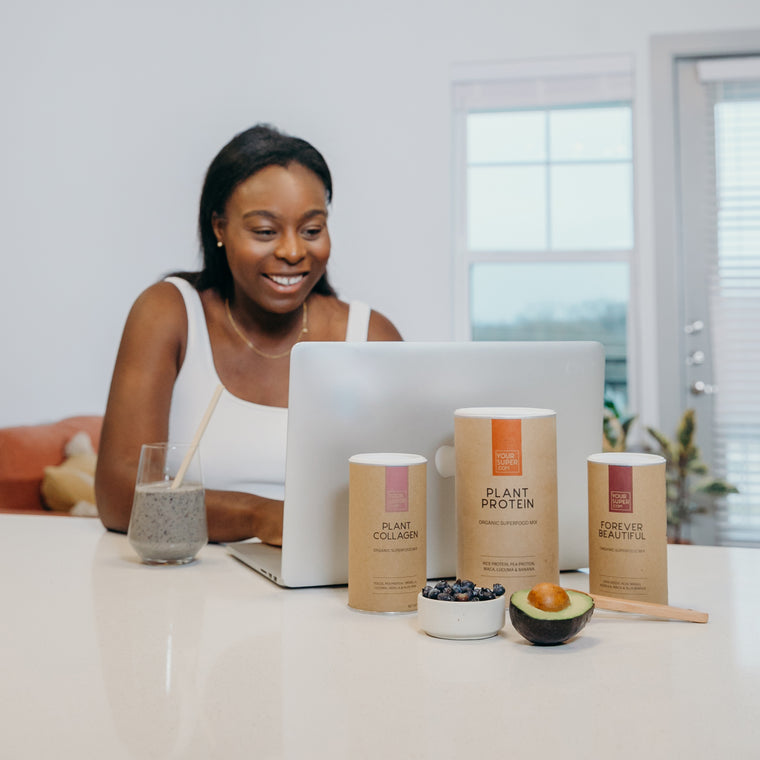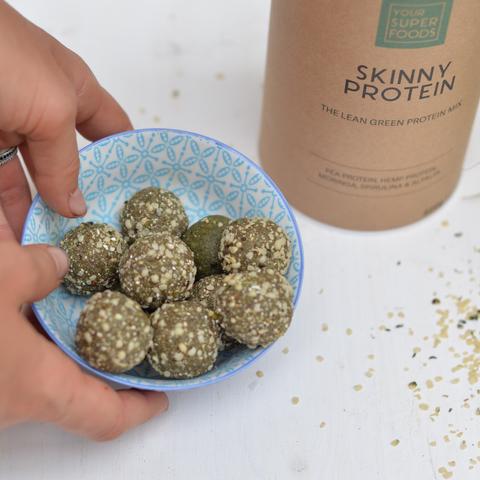"How many calories should I eat a day?"
"How many calories should I eat to lose weight?
"Where can I find a calorie calculator?"
"What is the best way to track how many calories I eat?"
"How many calories are in [insert name of food here]?
If one or more of the above questions have ever popped up in your Google search history, you're not alone.
For years, calorie counting has been a standard way to lose weight - driven by Western diet culture. Most people only realise too late how unsuitable and dangerous this method can be for everyday life. And this is exactly why we tell you with a clear conscience: there is a better way to diet. A way that can be more fun and pamper your body instead of punishing it, and that can help you lead a healthier life in the long term. And that way starts with whole foods.
Don't count calories - count plants!
Maybe you've heard the saying "quality over quantity", right? That's exactly what you should keep in mind if you want to feed your body optimally. It's not about reaching any number (quantity), but about providing your body with all the goodness that nature has to offer.
It is much more important to look at the nutritional value of food outside of the calorific value (i.e. calories)! After all, counting calories often leads to unbalanced meals and accompanying gaps in nutrient requirements.
Here are a few simple tips that can help you build a new relationship with food.
Fill your plate with whole foods
Whole foods and nutrient-dense superfoods contain important nutrients your body needs, including vitamins, minerals, phytonutrients and enzymes. The more micronutrients you eat, the better you nourish your body! In the spirit of "Eat the Rainbow", you can eat your way through the plant diversity that Mother Nature has to offer. The natural fibre found in whole foods will keep you feeling full and give cravings a run for their money.
Eat big meals
Because plant-based foods are less calorie dense and contain a lot of water, make sure you eat larger portions to get enough energy. So forget about all those so-called "portion sizes" you might have Googled and try to pay attention to your individual feeling of fullness. This leads us directly to the next tip.
Intuitive eating
Intuitive eating is all about learning to listen to your body's needs and, for example, to stop eating when you're full or when you don't want to keep to a certain time. This sounds very simple, after all, this is the way children eat. However, intuitive eating is a relatively advanced dietary method for us adults, as we have to unlearn dietary behaviour that was learned and internalised at an early age. In addition, we are too busy with other things in our daily lives to take the time to consciously notice our body's hunger signs. So start slowly and try out how you can integrate intuitive eating into your everyday life. It may be advisable to work with a nutritionist or seek professional advice elsewhere.
Don't be too hard on yourself
Go easy on yourself and your body. Food should not be your enemy, quite the opposite! A variety of plant-based foods support natural healing processes in your body, give you more energy, better digestion, glowing skin and inner balance. And above all, it gives you more joy in life. Because let's face it: no one has time to count calories.
Start nourishing your body with the best of nature - and feel good!







